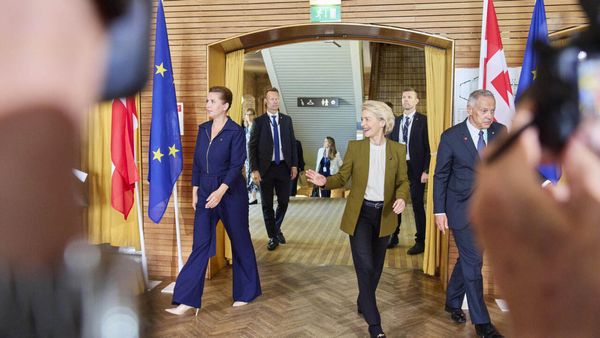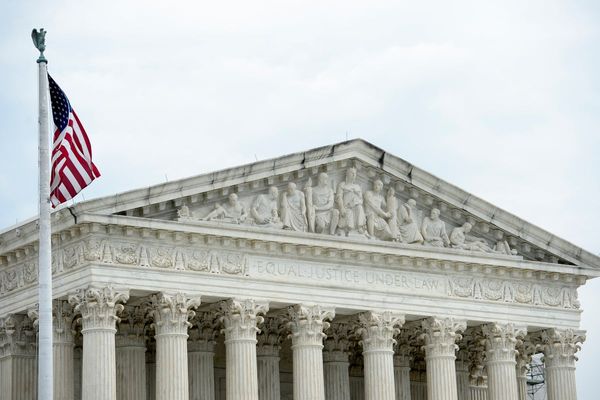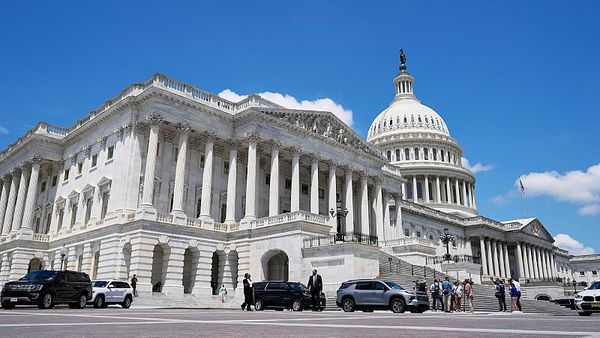For seven seasons on the USA legal drama "Suits," Gina Torres played Jessica Pearson, the head honcho at a white-shoe law firm in New York who spent her days expertly maneuvering around power players while attempting to keep her own colleagues in check as they created one complication after another.
Building a spinoff around Torres is an ingenious idea and with "Pearson" (premiering 9 p.m. Wednesday on USA), it's now Jessica who's creating some complications of her own _ at least one that got her disbarred before the events of the first episode even unfold. Unable to practice law, Jessica nabs herself a job working for the mayor of Chicago.
Her exact title is left unspecified: she's part fixer, part adviser, all around consigliere _ and an outsider viewed with constant suspicion. The phrase "the Chicago way" is never explicitly spoken but it's the subtext to every interaction this New York transplant has as she acclimates to "how things are done around here."
The show is from "Suits" creator Aaron Korsh, who is executive producer along with Torres and showrunner Daniel Arkin, and the Chicago incarnation of Jessica Pearson is recognizably cool as a cucumber _ a character who never met a power play or a pair of stilettos she didn't like _ but now we also see the vulnerability behind the high-octane glamour.
"In New York I used to just snap my fingers and make things happen," she says at one point. "That old trope doesn't seem to be working for me here. And I'm lonely. And I hate it."
Morgan Spector plays Mayor Bobby Novak, and it is a character and a performance blatantly modeled on Rahm Emanuel (even though Spector says otherwise), right down to his impatience with anyone who dares to question his approach: "I run a big city, all right?" he snaps. "I know what I'm doing."
Does this choice to go full Rahm feel uninspired and quickly outdated _ particularly since we just elected a mayor whose public persona is unlike that of her cocky and easily annoyed predecessor? Yes. In fairness, the show was conceived (and the pilot shot) long before Mayor Lori Lightfoot took office _ before Emanuel even announced that he wouldn't be seeking re-election.
As a drama, "Pearson" lacks some of the fizz and moments of flickering comedy of its predecessor. (There is a brief cameo from a "Suits" cast member late in the 10-episode season.) But the show has plenty of fuel when it comes to deal-making and sharksmanship, as I like to call it _ above board and not. Everyone is compromised, even Jessica, despite her efforts to maintain a moral compass. She is a smooth operator and an adrenaline junkie who also genuinely doesn't want to see people screwed. She works not because she needs the money, but because she's forever chasing the thrill of the game, and Torres embodies her with a self-assured charisma that gives the show its spark. There is a brief but terrific scene in which Jessica all but makes it plain: I am Afro-Latina _ Torres herself is the daughter of Cuban immigrants _ and it is noteworthy because Hollywood has long treated Afro-Latinas as invisible. Actors are usually asked to play one or the other, but very rarely both. Considering Chicago is 60% black and Latinx combined, Jessica brings a much-needed experience and point of view to the table.
Less impressive is the casually ableist language that pops up here and there. I clocked it in two scenes wherein characters talk about how a traumatic injury in one case, and a progressive disease in another, have radically changed and complicated the lives of the people they love. That's legitimate _ it's the way these scenes are written that's a problem.
Primarily shot in Los Angeles, the cast and crew filmed in Chicago for about a week in October (shooting exteriors and a few interiors at city hall), and it's a pretty successful sleight of hand _ the show persuasively looks like Chicago. Far more, it's worth pointing out, than the Toronto-shot "Suits" has ever resembled New York.
The scripts get a lot of the small details right too: The mayor's office is correctly referred to as "the fifth floor." Some plot elements are drawn from real headlines: The hunger strike protesting the closure of Dyett High School in 2015 was clearly an inspiration, as was Amazon's interest in locating a second headquarters in the city. A line of dialogue casually references someone from Sidley _ as in the real life "Suits"-esque Chicago law firm Sidley Austin _ and Chicago native Jim O'Heir ("Parks and Recreation") plays the police superintendent. Even some of the establishing shots (including the Aqua Tower with its distinctive exterior) are slightly more interesting than your run of the mill b-roll.
It's easy enough to overlook the dinky set that passes for the city council chamber, but there is one small but noticeable detail the show gets wrong that will prompt confused-dog-head-tilts from most Chicagoans: Twice Jessica gets into a car and gives the driver her destination using cross streets _ Calumet and 61st in one instance, and Avalon and 81st in another. At least those intersections actually exist! But nobody would say it that way. It's always numbered street first, then named street.
The CBS All Access drama "The Good Wife" _ also set in a fictional world of legal wrangling and Chicago power players but shot entirely in New York (the show doesn't even bother shooting exteriors here) _ is an interesting comparison point. Both are spinoffs centering women once at the top of their game _ Diane Lockhart on "The Good Wife" and Jessica Pearson on "Suits" _ humbled by a change in circumstances and the shows built around them prioritize intelligent pivoting and late-career reinvention.
Both shows are also gorgeous to look at.
Like "The Good Wife's" Christine Baranski, Torres has one of the best wardrobes in television: extremely high-end _ at once fashionable, bodycon and believably professional _ and everything fits her to a T. She lives in a glorious, roomy, super-stylish apartment downtown with a view of the lake in the distance.
Those slick surfaces of her home find plenty of metaphorical contrast as she bumps up against one rough player after another. The show is uniquely focused on the headaches and illicit deals that grease the machine _ the episode titles capture the idea that Chicago is a city of fiefdoms: "The Superintendent," "The Union Leader," "The Alderman," and so on. The show's creators seem genuinely interested in how Chicago works and it's more than I expected (look at the ever-popular but strangely generic Chicago franchise from Dick Wolf on NBC, which shoots here full-time).
It's smart to filter all that through the eyes of a newcomer who isn't easily intimidated.
"You brought me in to put out your fires," Jessica tells the mayor at one point. To someone else she says: "I have plenty of money, with no one to spend it on but myself." She is a woman in search of a purpose and forever wondering who her allies really are. By season's end, the answers remain elusive.







